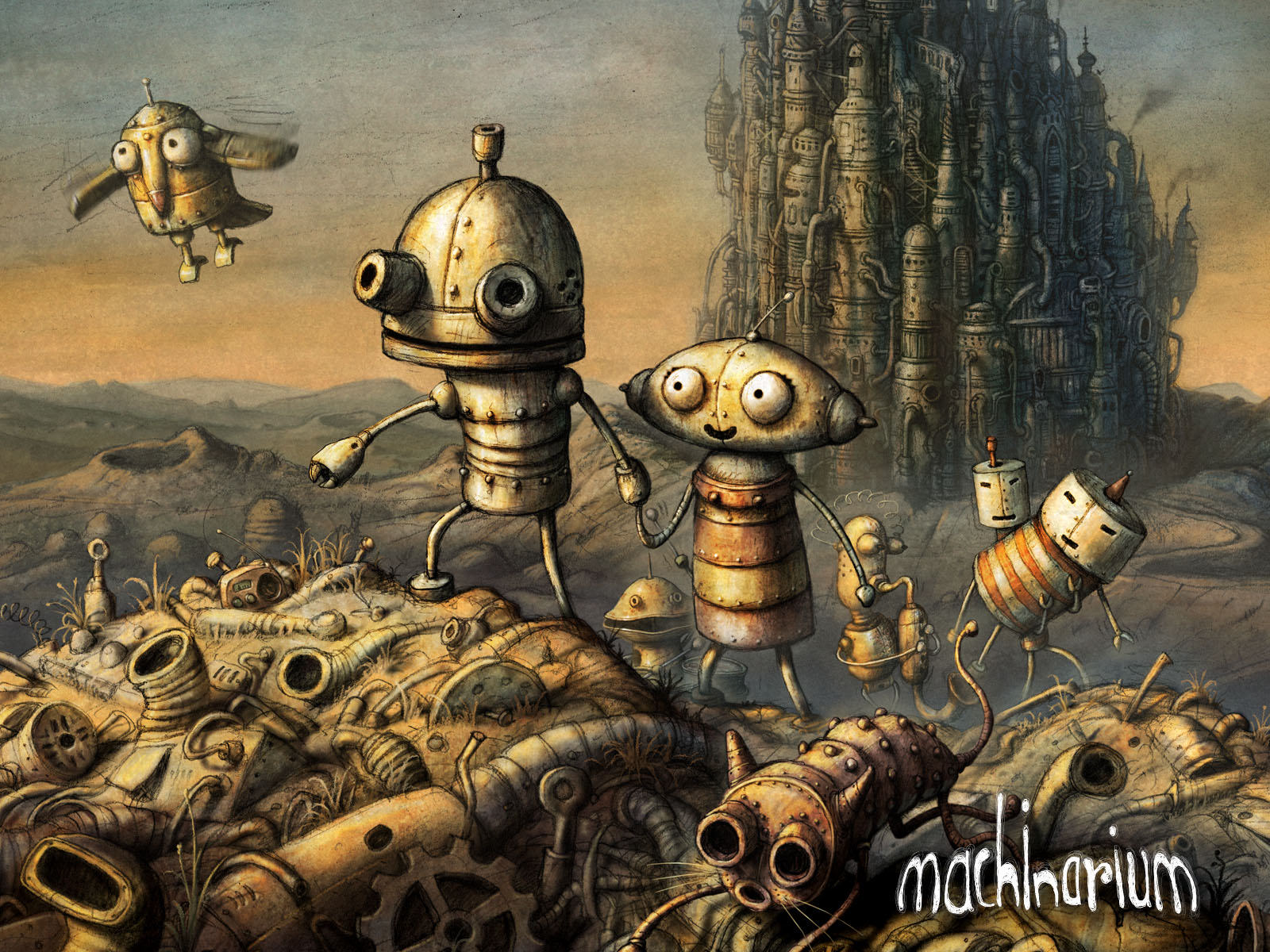Trending
Opinion: How will Project 2025 impact game developers?
The Heritage Foundation's manifesto for the possible next administration could do great harm to many, including large portions of the game development community.

Featured Blog | This community-written post highlights the best of what the game industry has to offer. Read more like it on the Game Developer Blogs or learn how to Submit Your Own Blog Post
How Machinarium helps the player make the right decisions without having to sacrifice a fulfilling experience.

This post was originally published on my personal blog about games design Heaven Twiddling.

Point and click adventure games have a number of tropes like their linearity and focus on story but the one thing they all have in common is their ability to stump you! There is usually only one path and one solution to every problem, often resulting in your “rubbing” every item you have collected in your inventory together and crossing your fingers.
Long stints of puzzle frustration are rewarded with the great highs of self achievement. There is nothing better than finally figuring out a puzzle and having the feeling you are the smartest person alive. It doesn’t matter how many other people have solved it before you, in that moment you are a genius!
Whilst the pay off is always worth it, temptation is always whispering in your ear. “You could make this so much easier on yourself if you just looked at the guide.” “Come on, one look wont hurt! You’re only going to do it this once.” Of course if you do cave in, it will never be “just that once” if you give in once you will do it again and again.
Adventure game designers know this, they know we are weak, so to try and alleviate some of that frustration they have begun including hint systems. Something subtle to point you in the right direction without cheapening the experience. Sometimes though these aren’t enough and you really just need to know the answer.
The internet has created it’s own adventure game “Win” button with complete guides only a couple of clicks away. Once the player has found and used a guide it becomes an easy “alt tab” solution to even the most minor struggle. Now when the player becomes even slightly frustrated they will just resort to the guide.
What makes Machinarium interesting is that it supports its hint system with a complete game walk-through. After what I have just said this may sound counter productive. Surely with the player having a complete guide built into it they will resort to it all the time as they usually would with an online guide.
Machinarium cleverly avoids this by hiding the guide behind a helicopter-esk minigame. It may not be hugely challenging, but this small barrier between the player and the solution is enough to make them reconsider. By building it into the game it also discourages the player from checking an online guide and potentially reading more than they should.
I think this is an interesting solution to the problem of the player ruining their own experience. I found on my own play through I tried to use the in game guide several times but the mini-game was enough to convince me to try a little more. It meant I still got to enjoy the success of figuring it out myself, but on the one occasion I was truly stuck I didn’t have to leave the game to find the solution.
One might argue that if the player wants to read the guide from front to back that is their choice. I, however believe if the games designer responsibility to make the players experience as enjoyable as possible. That means giving the player just enough information to get them to where they need without removing the challenge.
Check out my blog Heaven Twiddling for more games design highlights.
Read more about:
Featured BlogsYou May Also Like